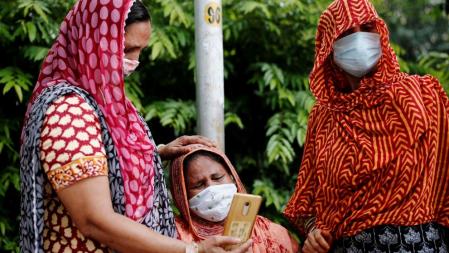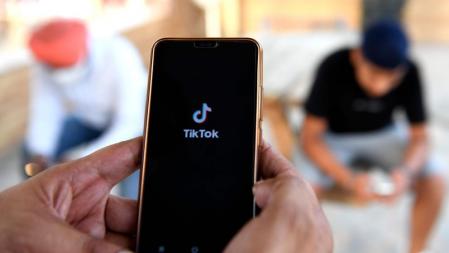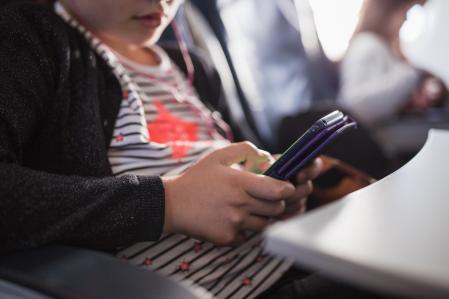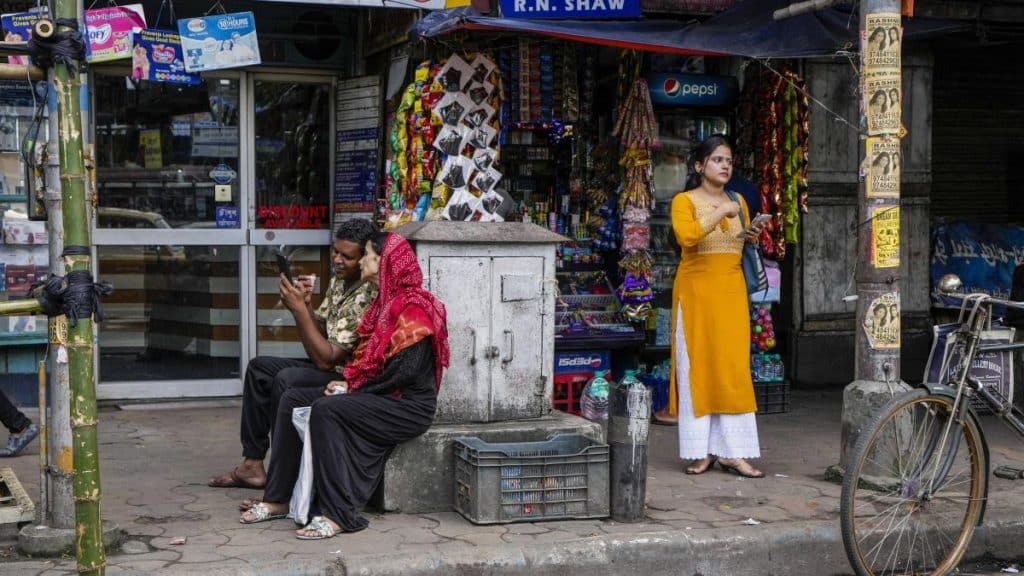The increase in phone use seems like a natural necessity for modern life. It can even become an obsession if action is not taken. And it is what a town in India has decided to do, which has made the decision to reduce the daily use of both television and the Internet to prevent the inhabitants from being so dependent on technology.
Through this unique initiative called Internet Avkaash, the inhabitants of Vadgaon, in the state of Maharashtra, have to turn off their mobile phones and televisions for an hour and a half at night every day. During this time they have to engage in other activities such as talking to each other or reading.
Teenagers are the great beneficiaries of the digital blackout
BBC Hindi has explained that when the clock strikes 7:00 p.m., a siren begins to sound. It is the warning to the inhabitants to put aside their mobile phones and other electronic devices until 8:30 p.m. Thus, in a few minutes, televisions and mobile phones are turned off.
Read also Alejandra Sánchez Mateos

The town council, not without problems, approved this detox, realizing that people were losing time for reading, physical activities and, in fact, talking to others and were only glued to their mobiles. “We decided at the village meeting on August 14 that we had to end this addiction,” Vijay Mohite, chairman of the village council, told BBC Hindi.

Women were key to installing this measure
Reuters
One of the big problems in this village is that its inhabitants, especially the women, are addicted to the soap operas that are broadcast in the afternoon. And when watching these series, the town practically stops completely.
The men of Vadgaon scoffed at the proposal, but the women were open to it. Thanks to them, students have been the most benefited by this technological blackout: television no longer bothers them during their study hours and, furthermore, they do not spend so many hours in front of screens. And by the way, adults, not being with their mobiles, can help them with their homework.
Dilip Mohite, a sugarcane farmer with three school-age children, told BBC Hindi that his children are now concentrating on their homework and it is easier to talk to them. On the other hand, Vandana Mohite, a housewife with children, has recognized that she can dedicate herself to housework in peace by having her children busy but without the noise of technology.
Read also Maria Garrido

It is mandatory to comply with this digital detox. To ensure that no one breaks the mandate between the established hours, the authorities, teachers and members of the village councils have been asked to inspect the houses in the afternoon.

Many young people prefer the mobile to books or sports so as not to get bored
AFP
Is this interruption of any use?
Dr. Manoj Kumar Sharma, professor of clinical psychology at the National Institute of Mental Health and Neurosciences, explained to BBC Hindi that “excessive non-productive use of the Internet” can end up producing psychological stress.
Teenagers are the main affected by the indiscriminate use of screens. This is because they prefer technology to other activities to avoid getting bored or to temporarily escape from unpleasant emotional states.

Children and adolescents can spend large amounts of time in front of cell phones
Getty Images
Therefore, the excess of technology, if it is not remedied, can end in continuous social isolation: people avoid talking to other people, they do not leave the house, sedentary habits settle… “You have to talk to children and make sure they have physical or leisure activities outside the network, as well as that they sleep and eat properly,” said Dr. Shar,a.
For this reason, even for an hour and a half, Vadgaon’s technological detox is useful to clear your mind of technology and dedicate yourself to other activities that are more beneficial: social interactions, study, sports or reading, for example .
This initiative, as reported by AIR, has been well received by the inhabitants of Vadgaon and is strictly followed after a few weeks of skepticism. Other neighboring towns have seen that this measure is having a positive impact on the community and it is hoped that they will also follow suit and apply the digital detox initiative.


